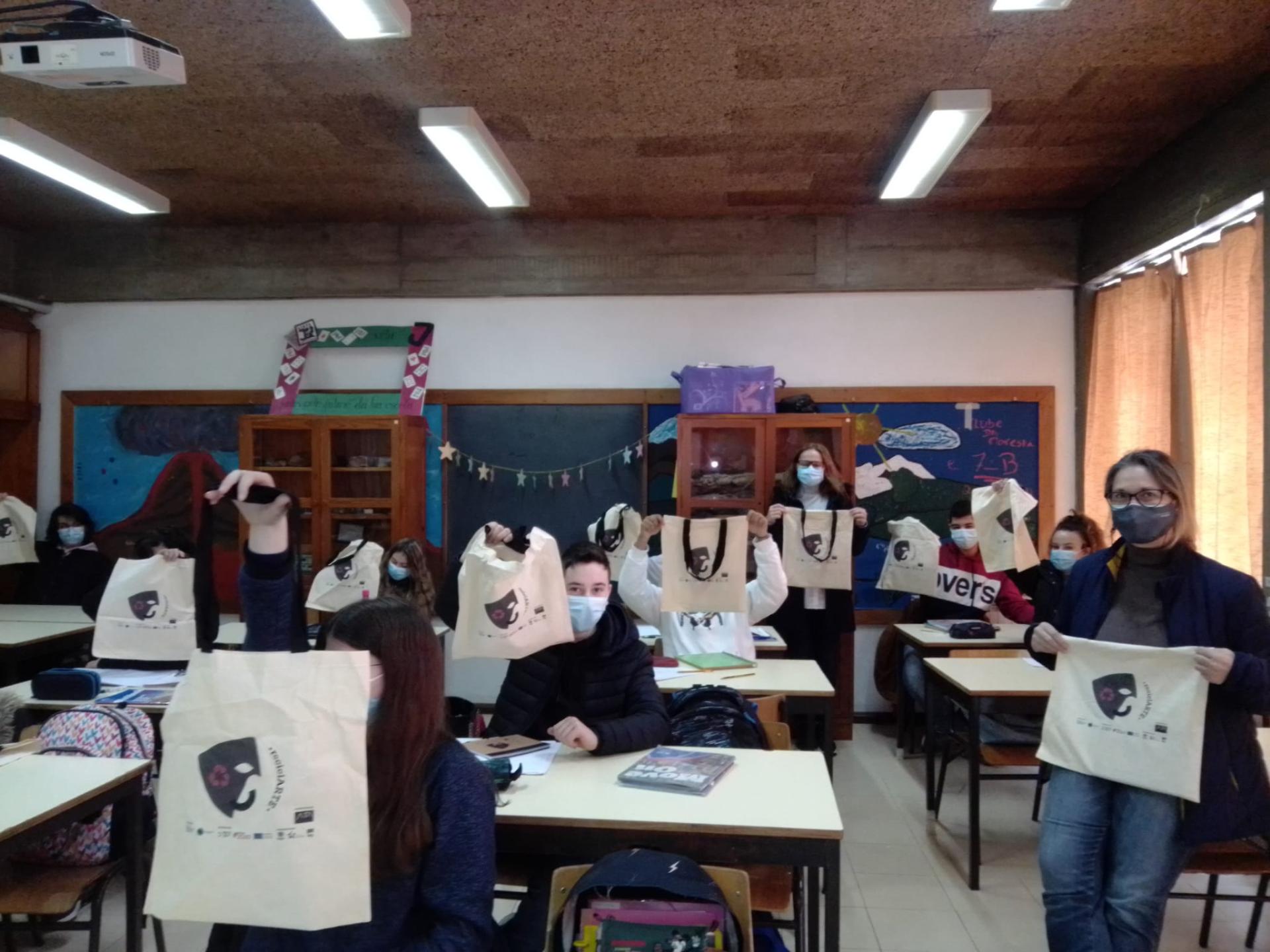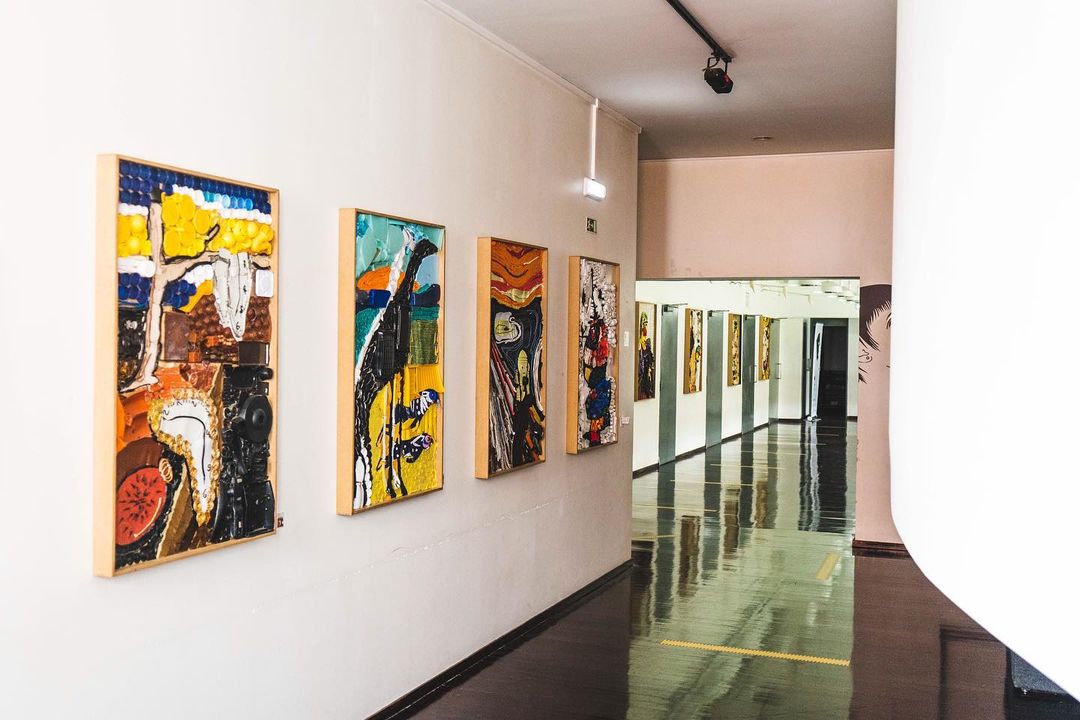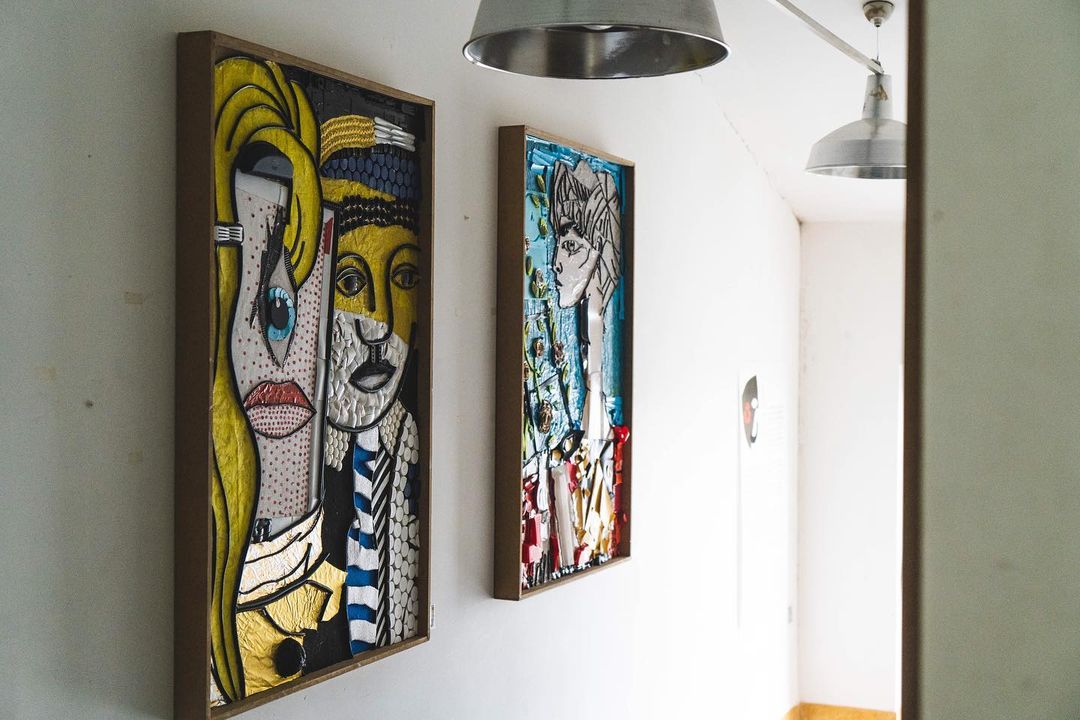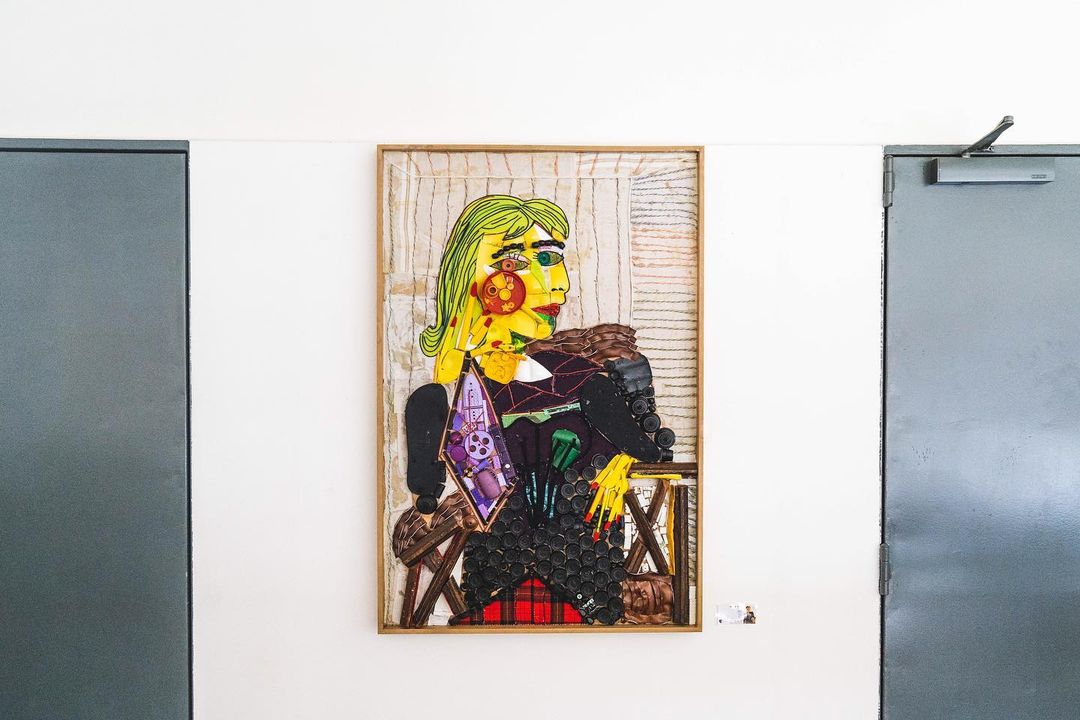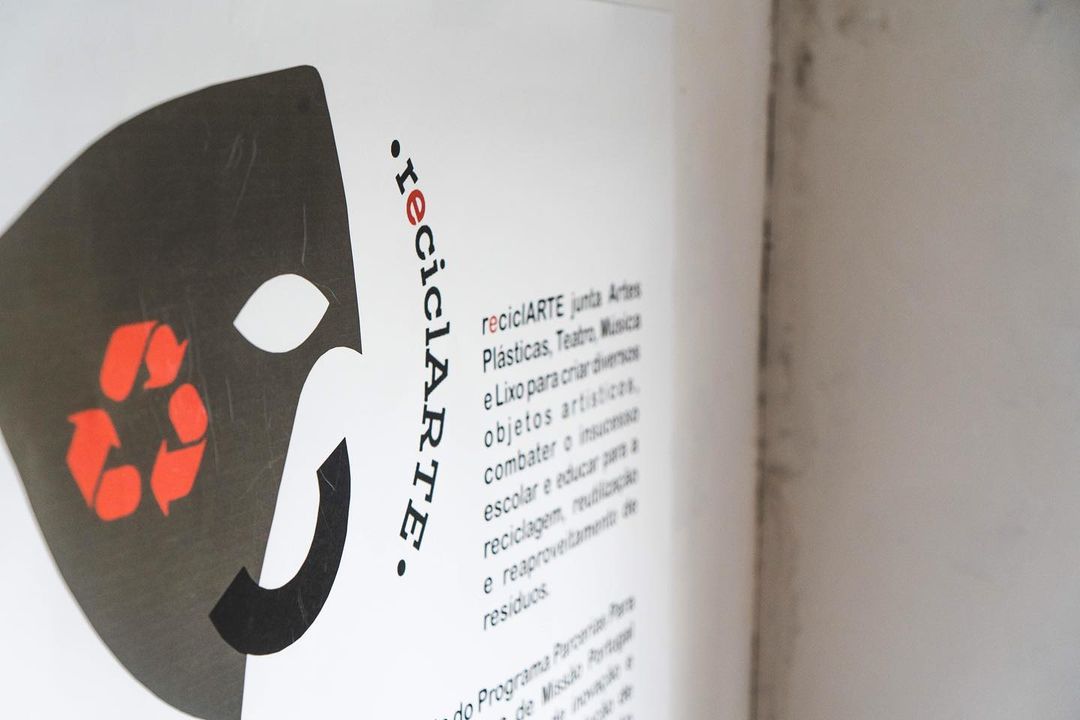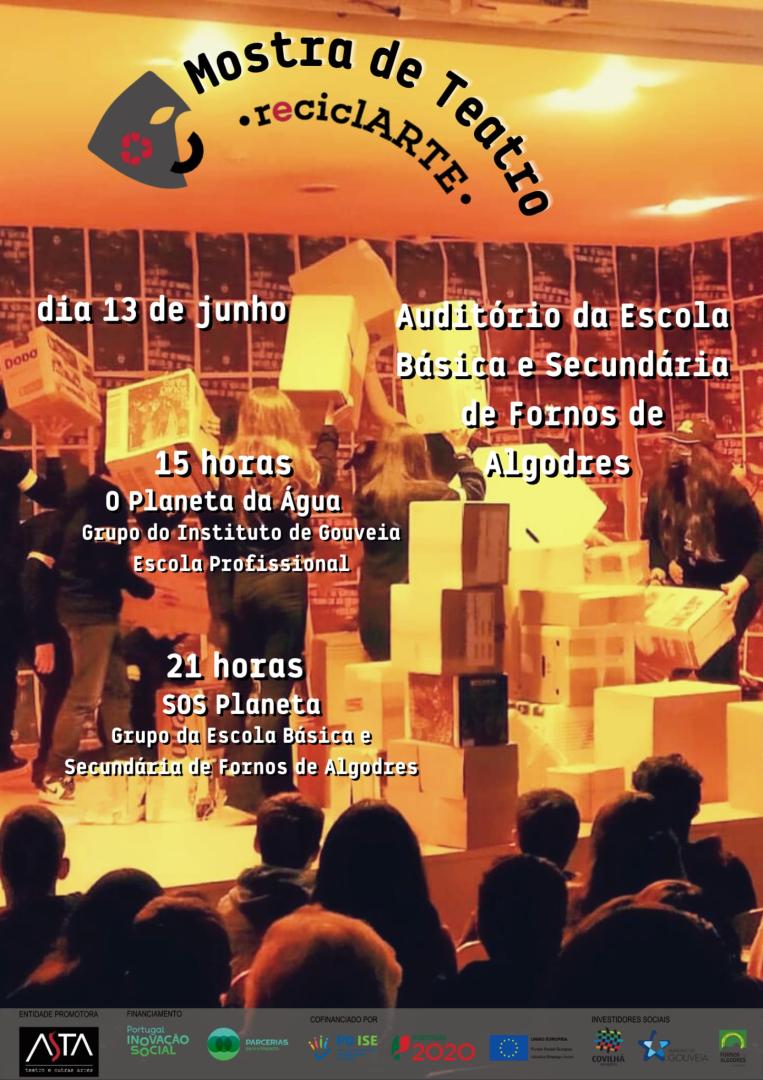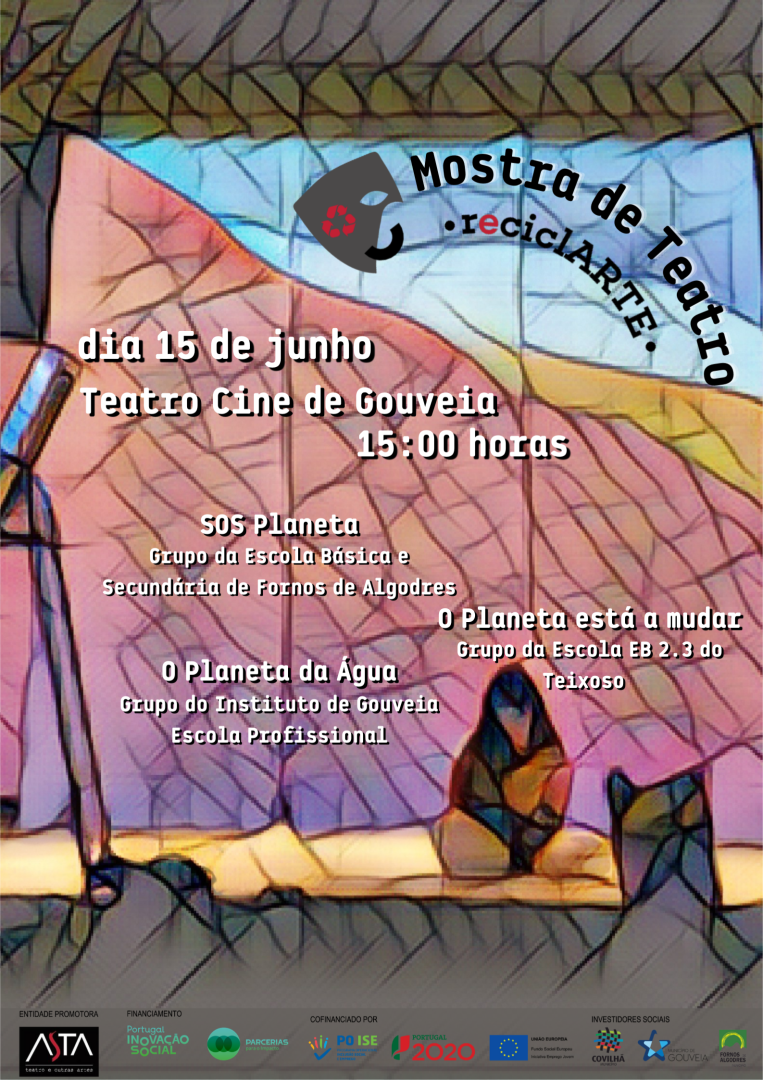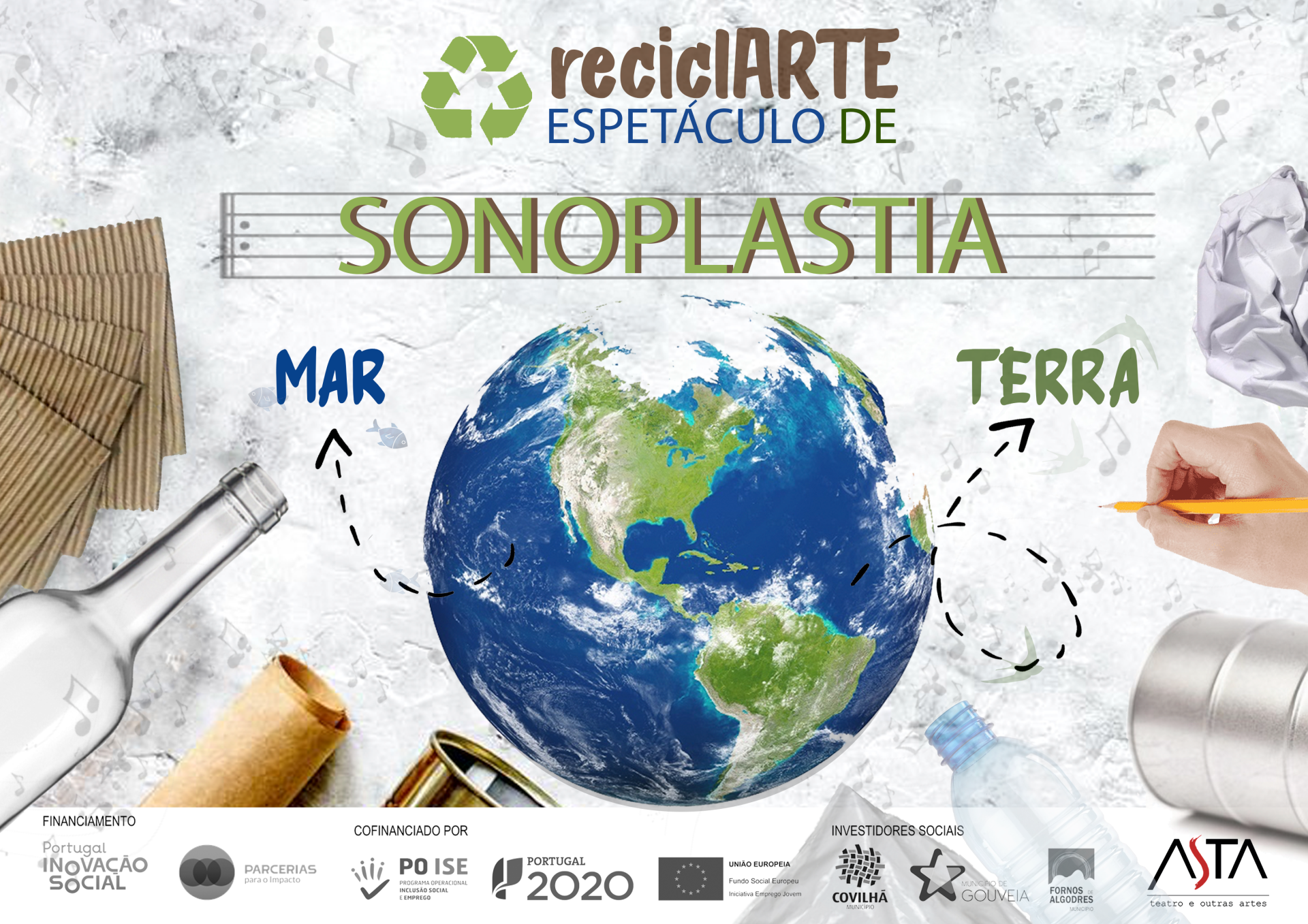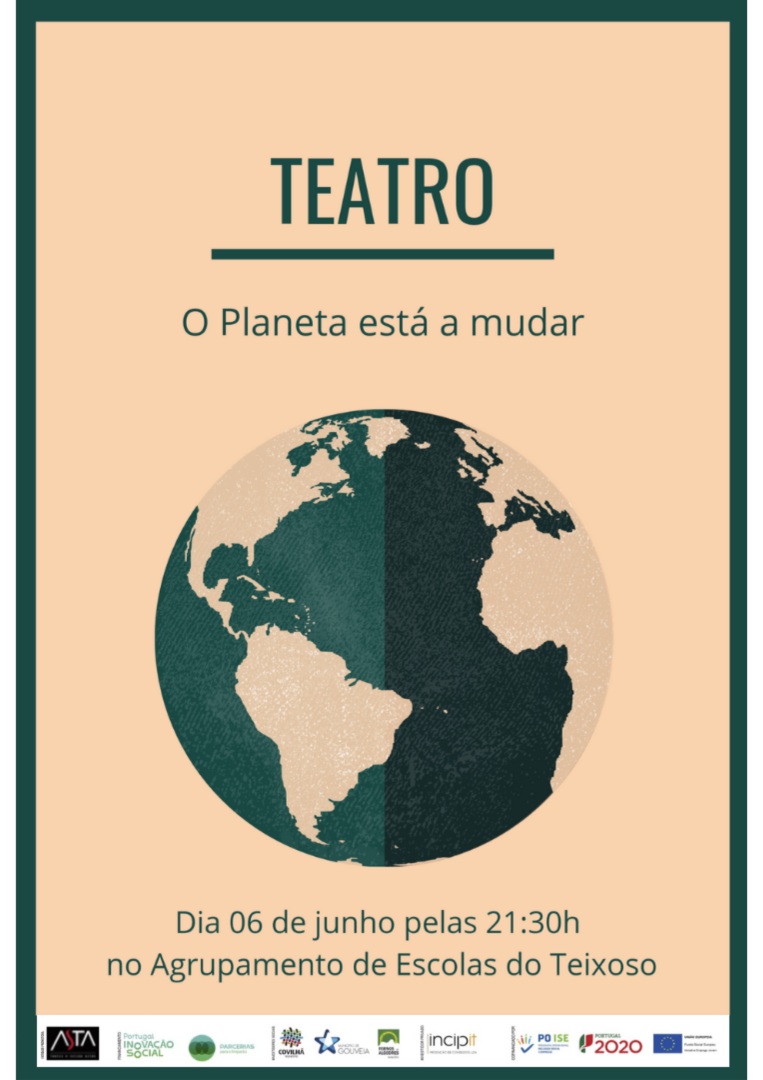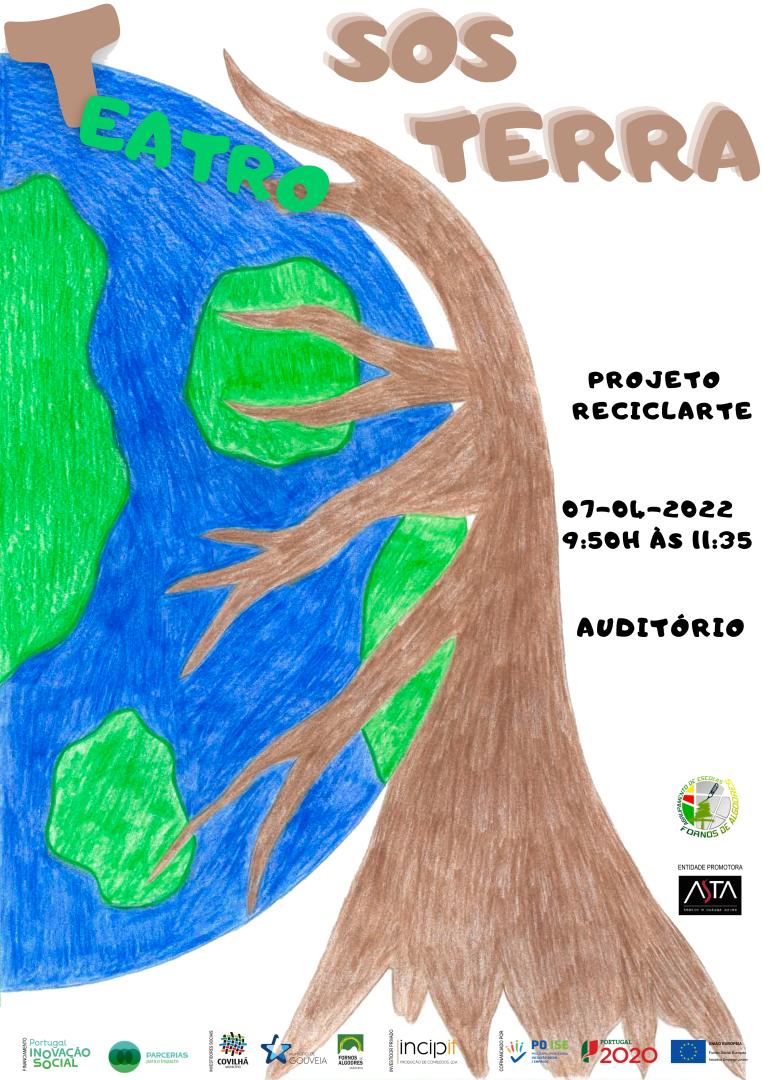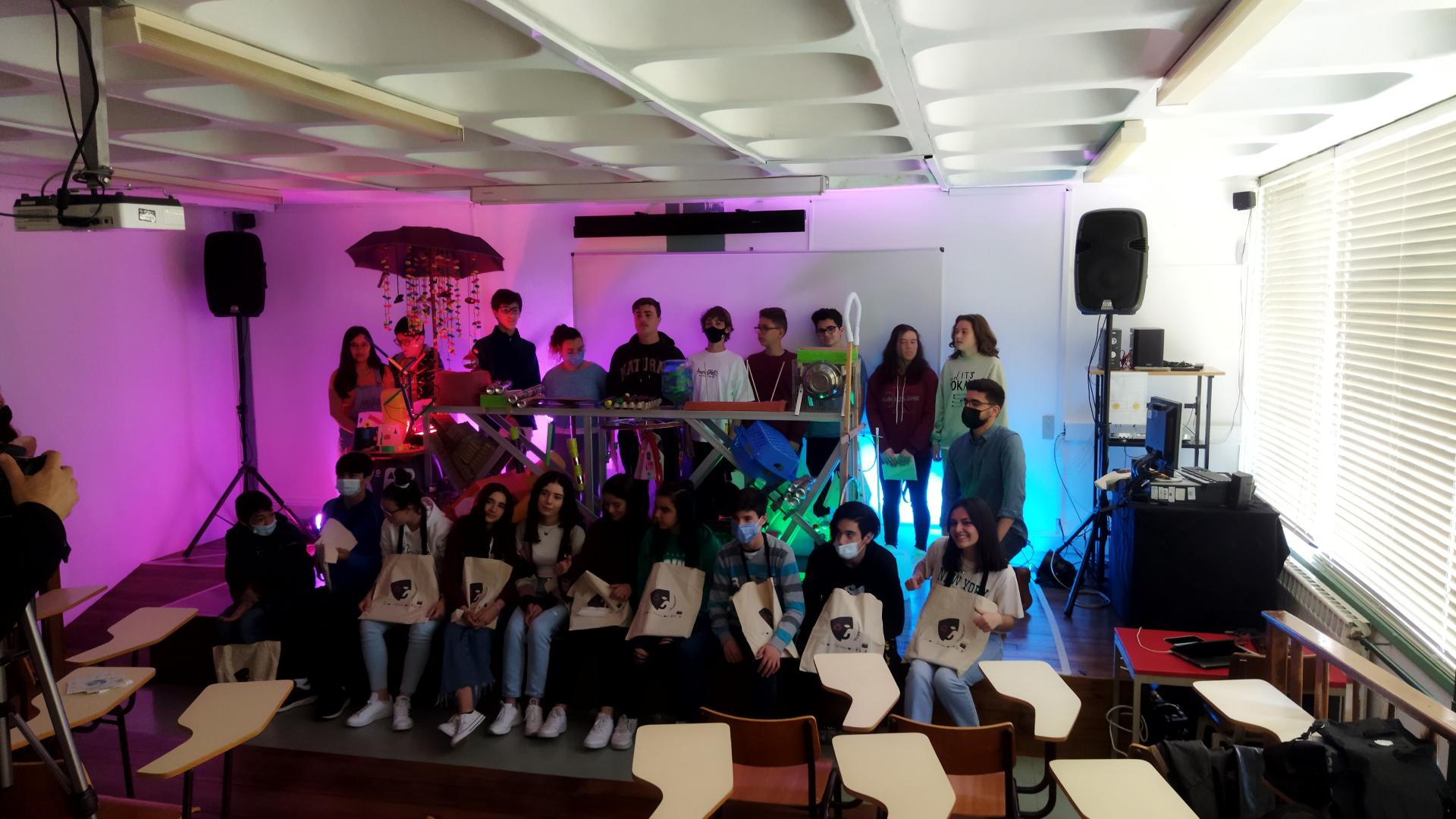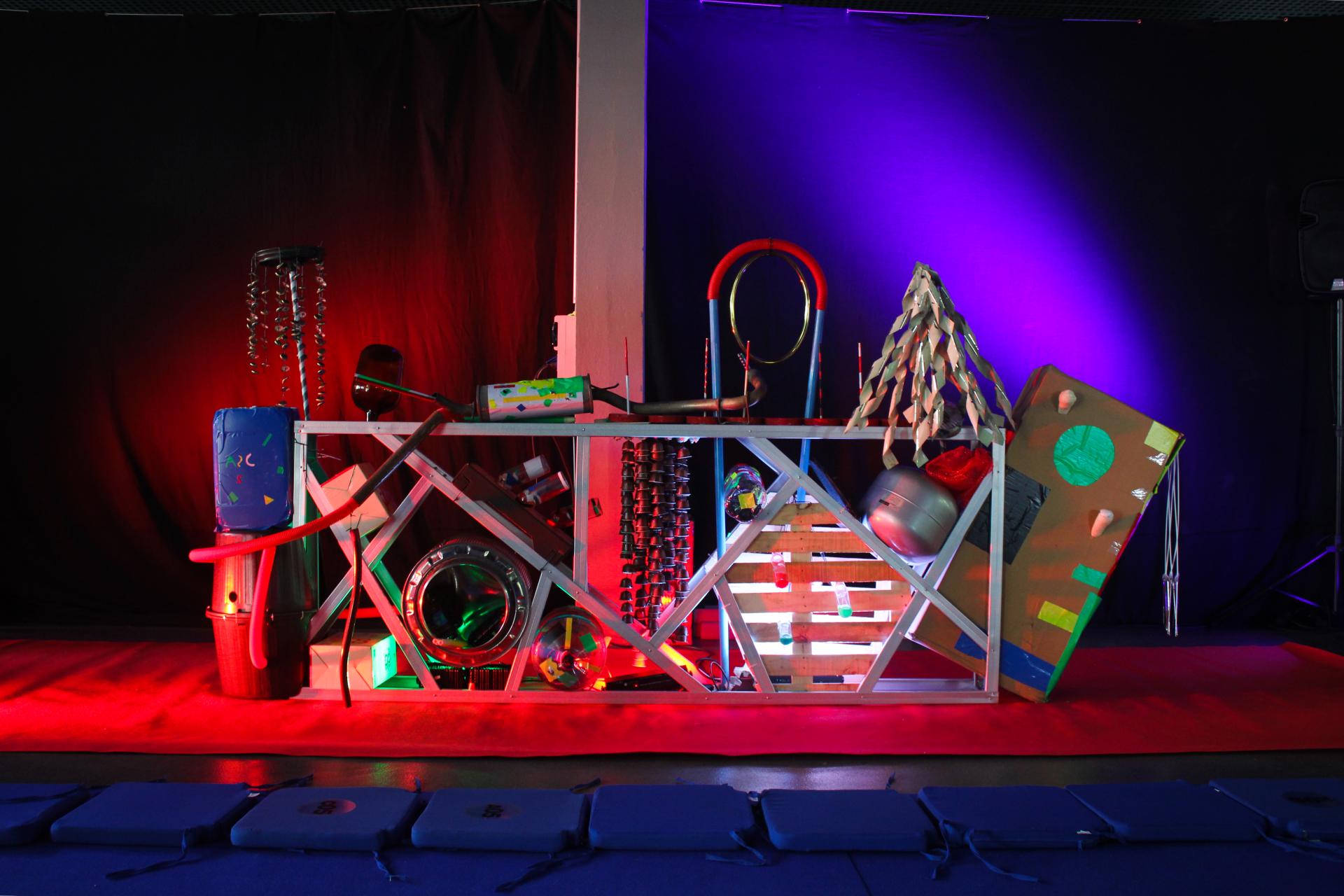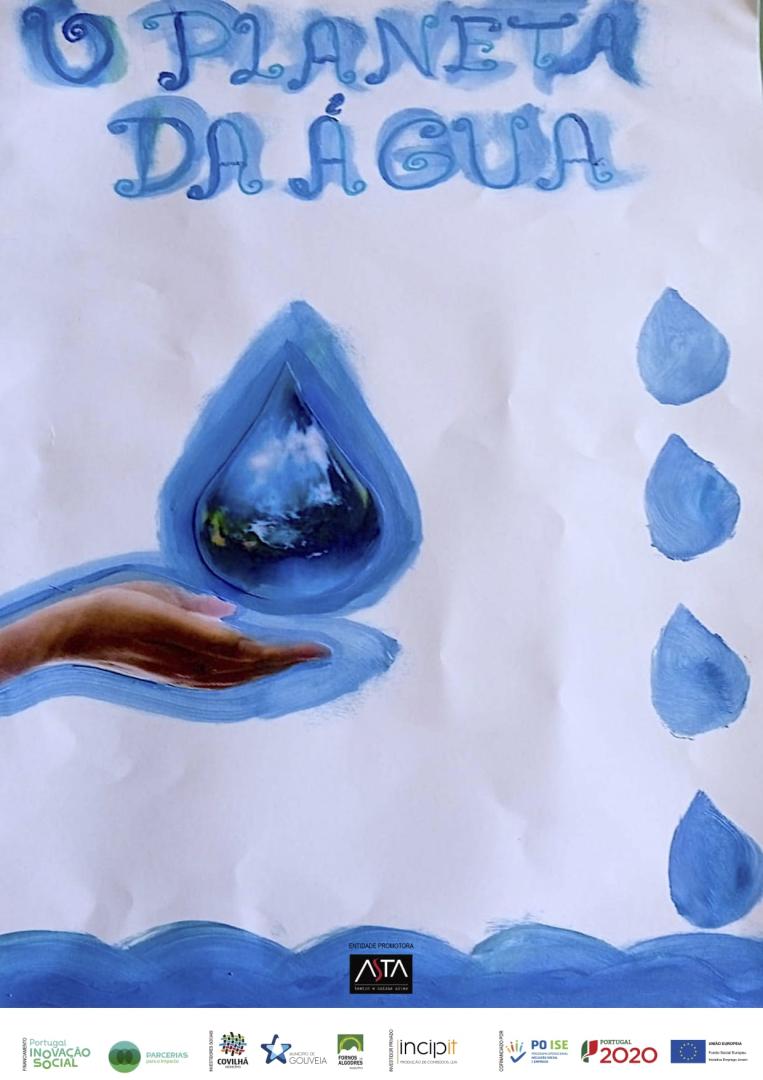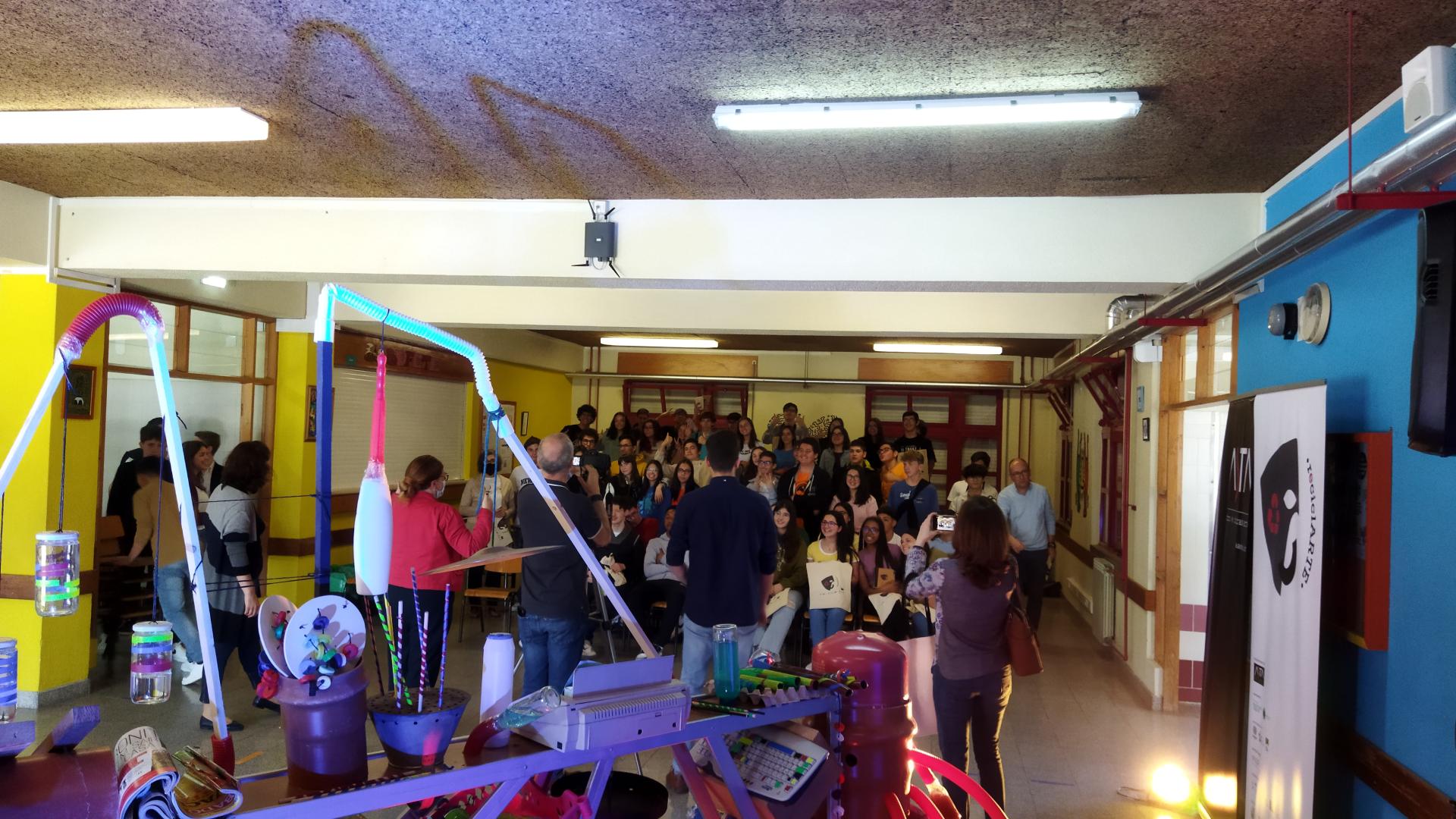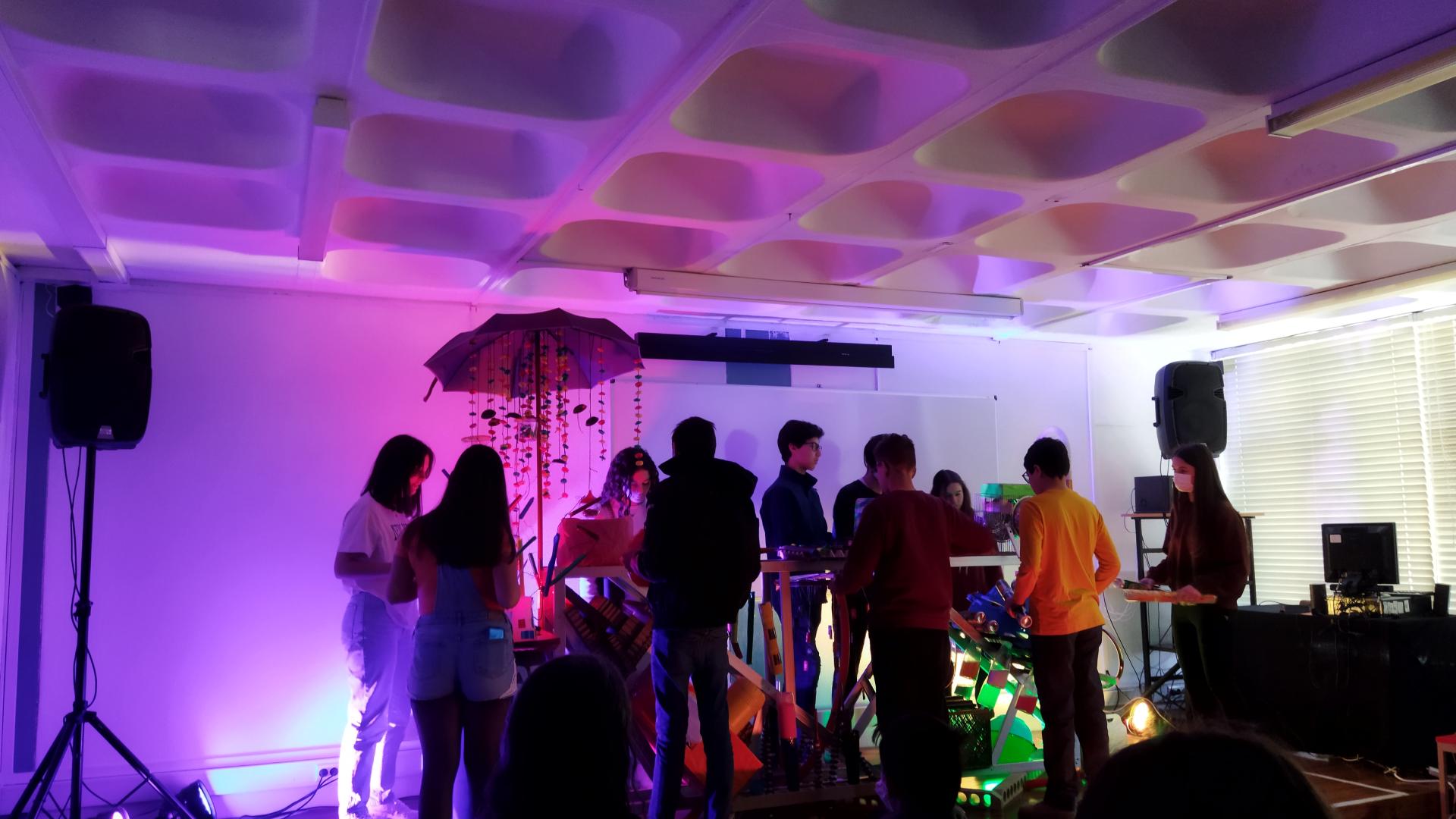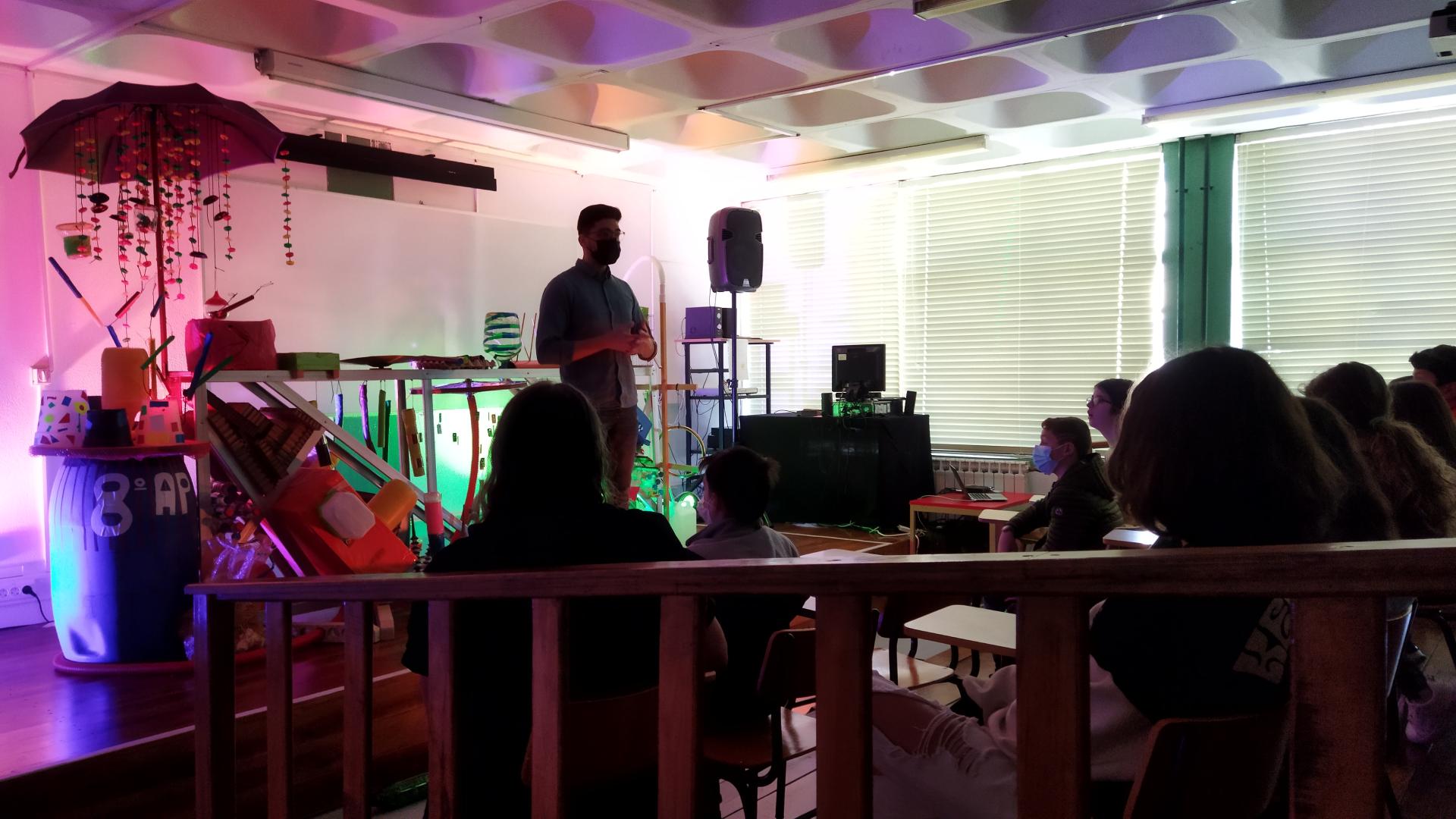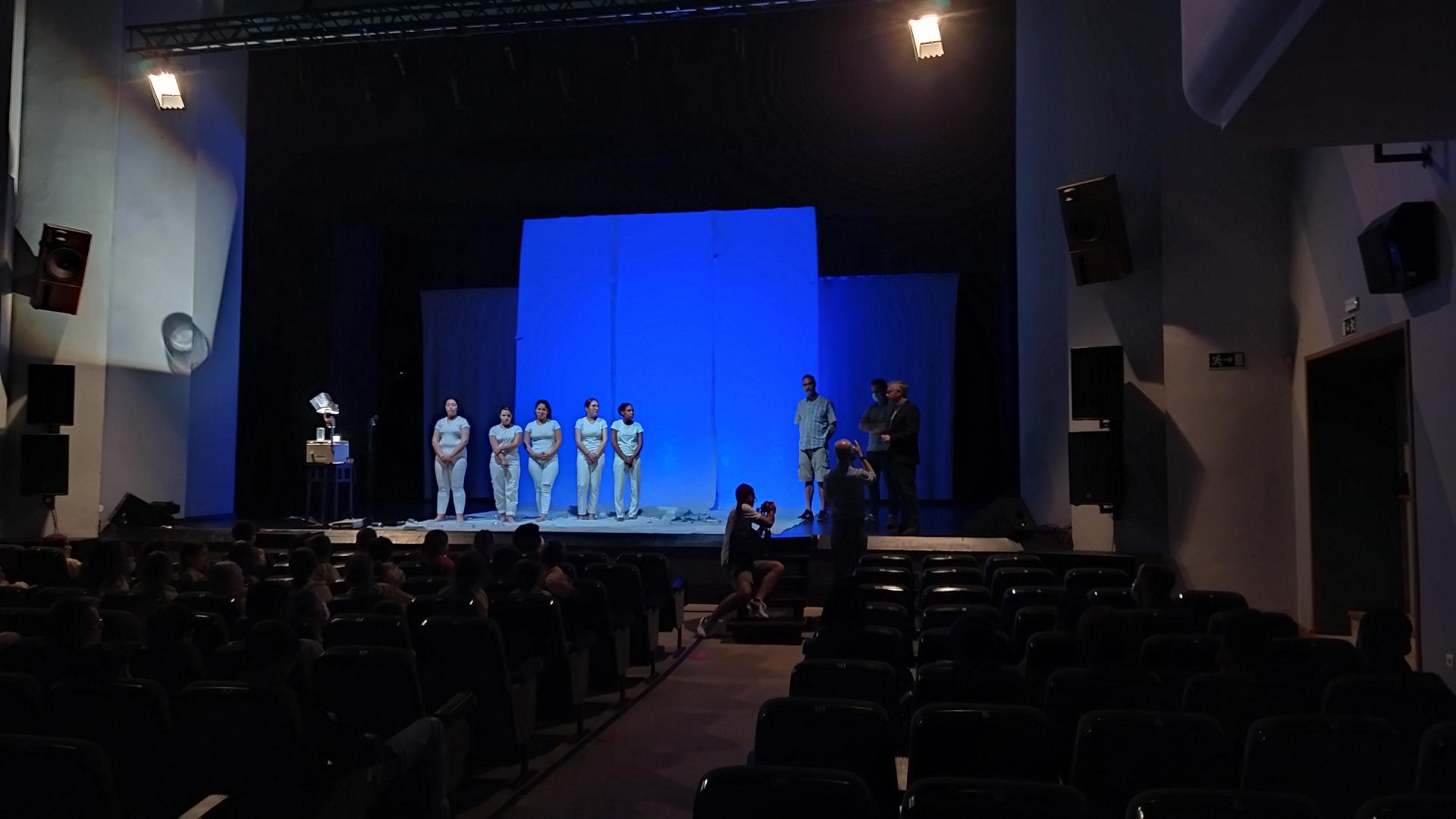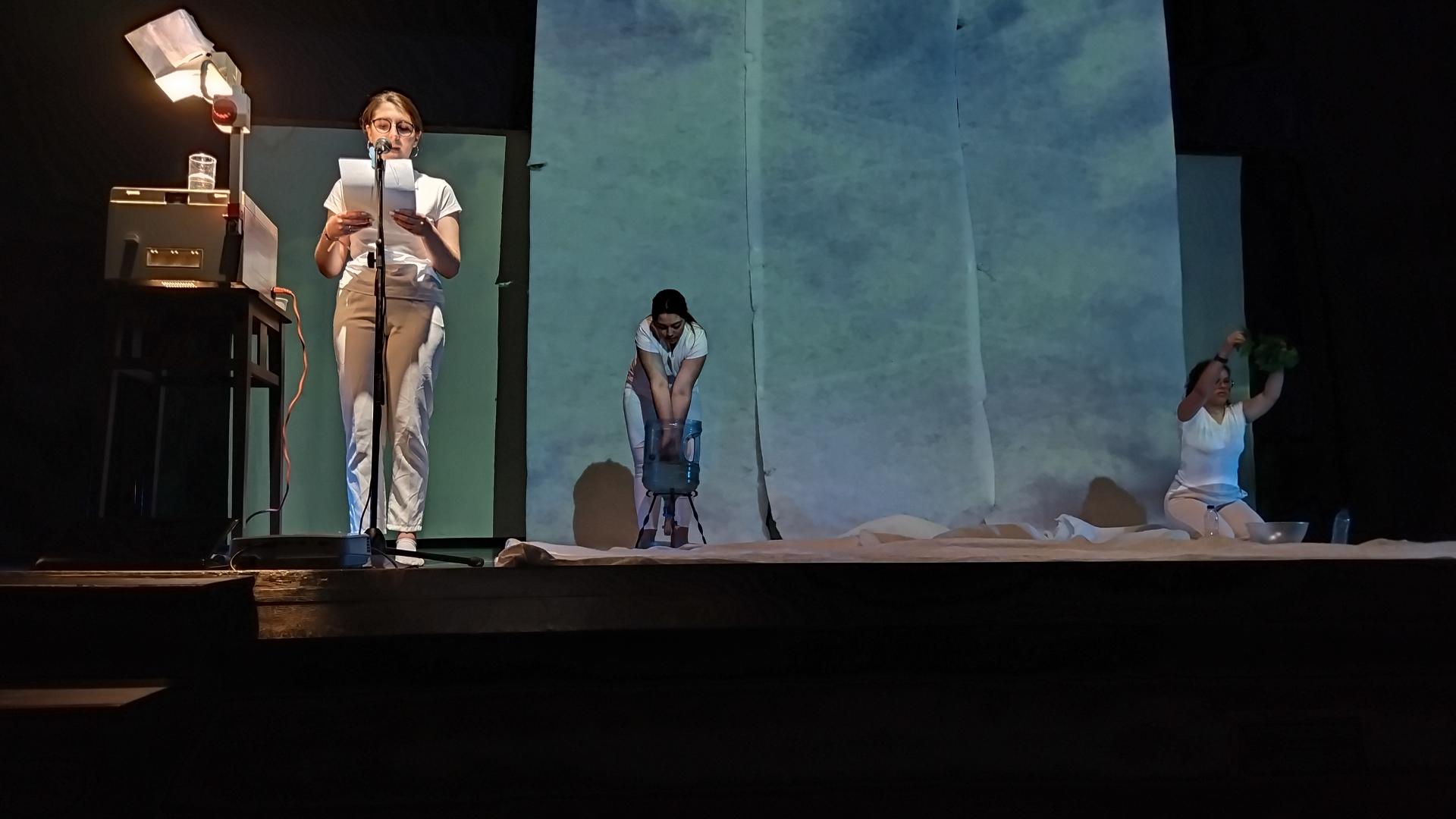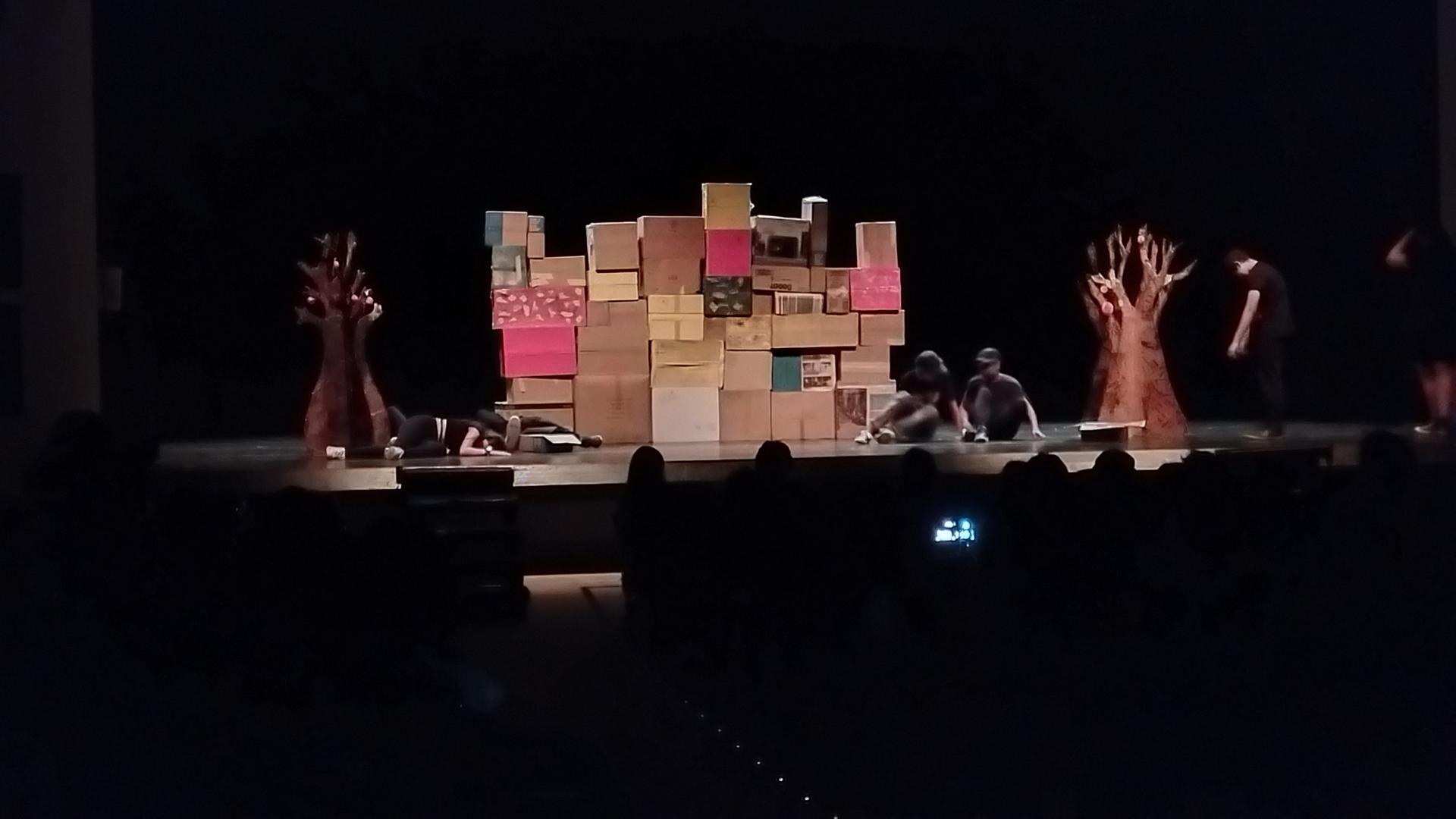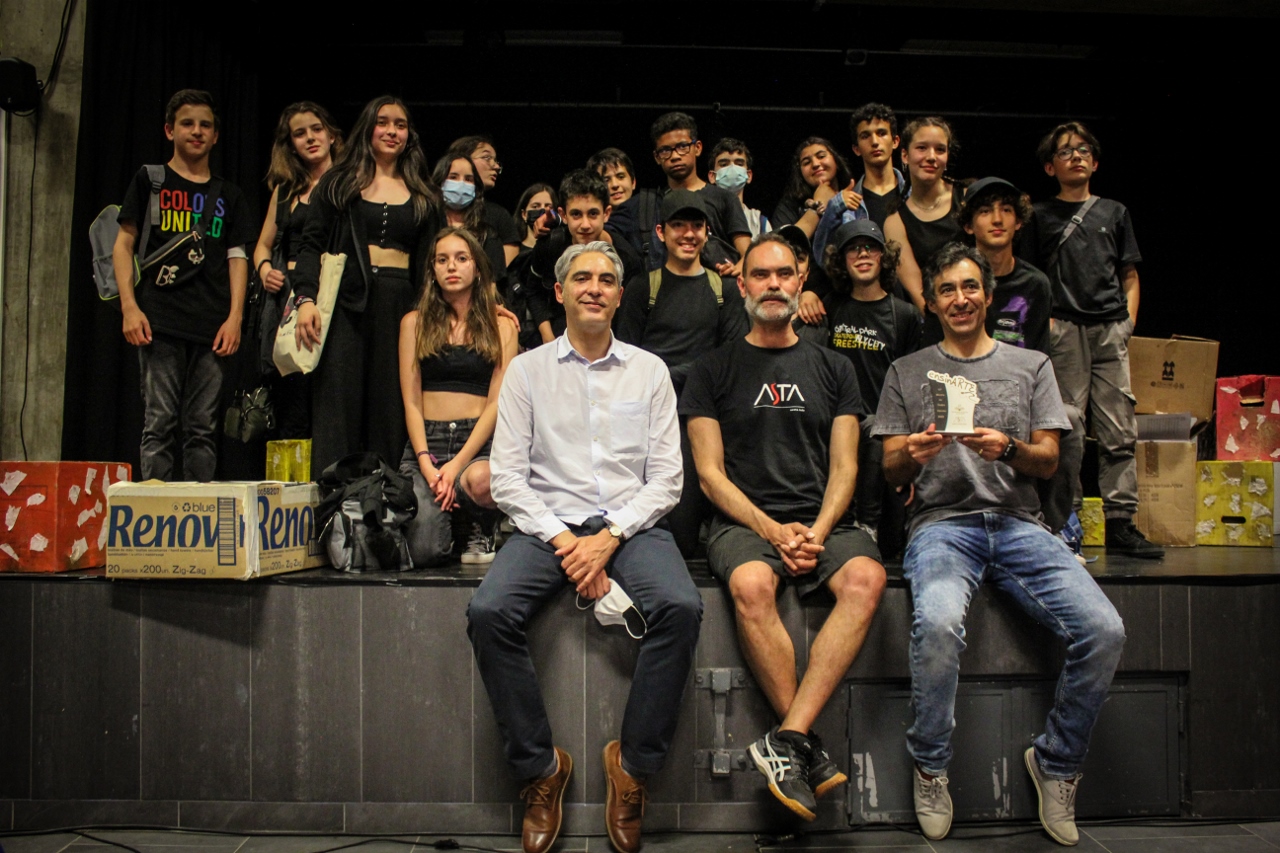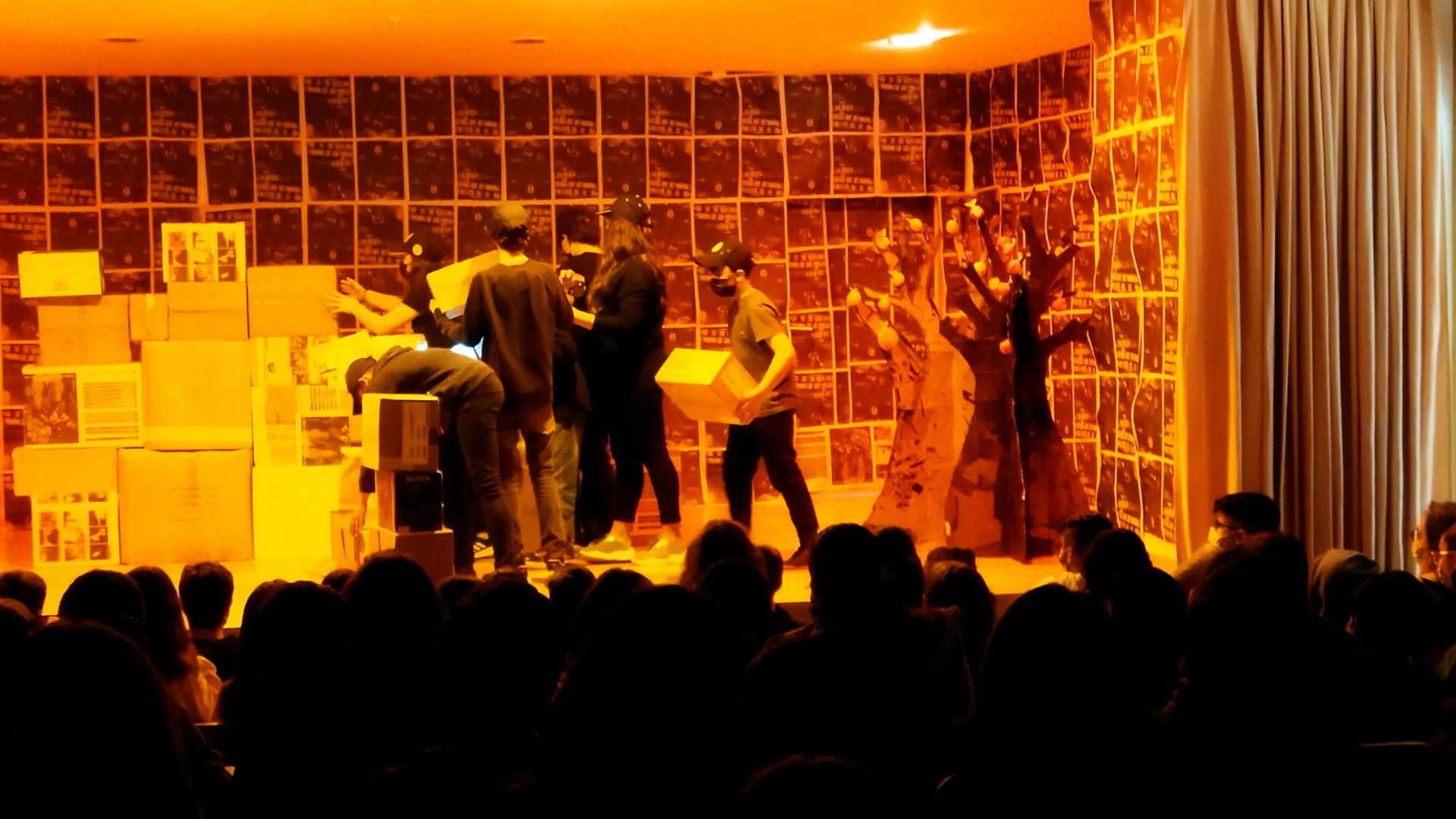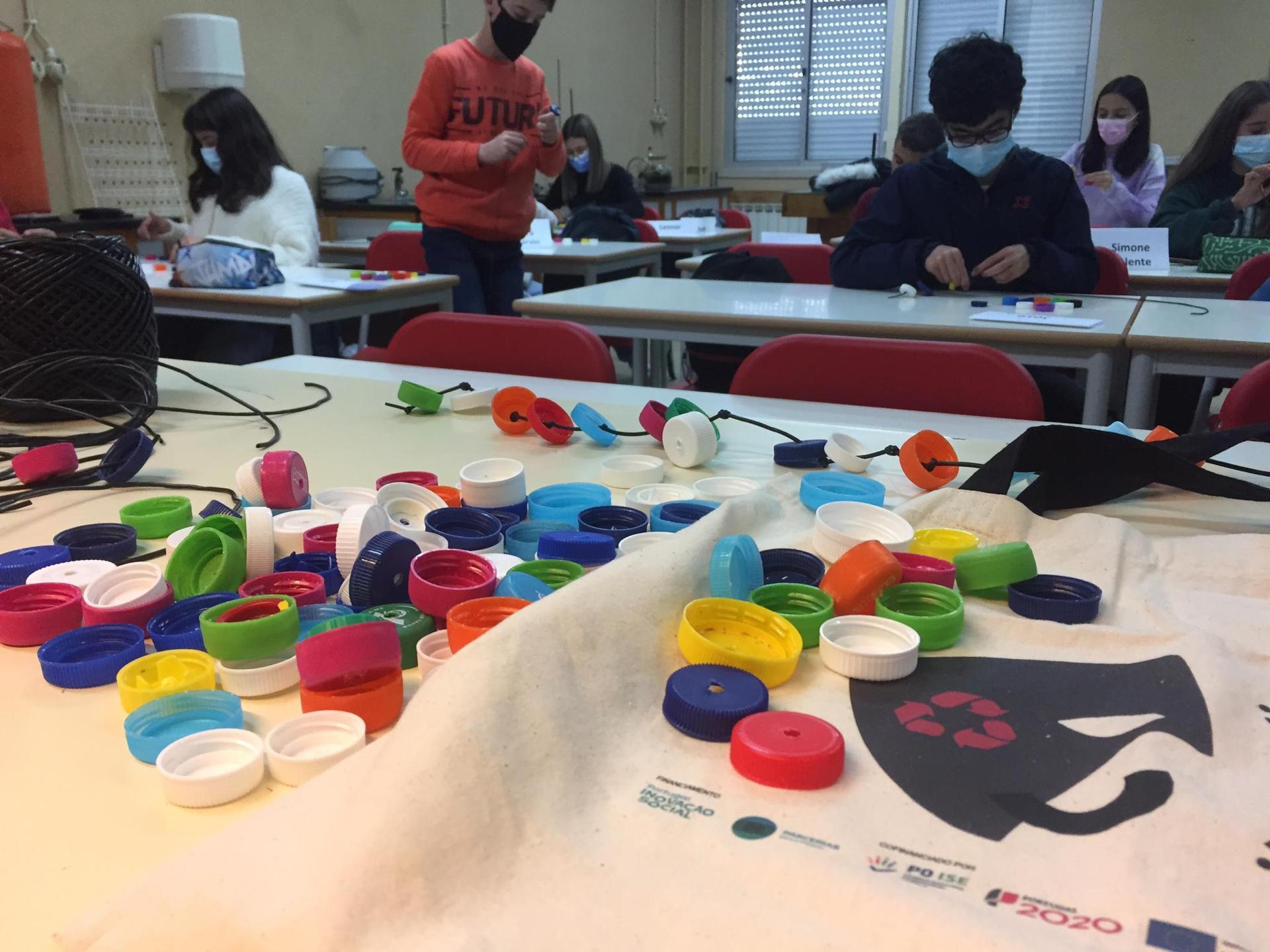ReciclArte
Basic information
Project Title
ReciclArte
Full project title
ReciclArte
Category
Shaping a circular industrial ecosystem and supporting life-cycle thinking
Project Description
ReciclArte is a social project where students were invited to use arts (theater, music, and visual arts) as a means to expand their interest in school and to develop a greater social awareness of environmental degradation: climate change, pollution and waste disposal. Over the course of three years, 225 students, ages 11 to 18, transformed recycled waste into arthritic objects. The project was promoted and developed by the artistic company ASTA (Portugal) in 6 schools from three municipalities.
Geographical Scope
Regional
Project Region
Central inland region of Portugal
- Municipality of Covilhã
- Municipality of Fornos de Algodres
- Municipality of Gouveia, Portugal
- Municipality of Covilhã
- Municipality of Fornos de Algodres
- Municipality of Gouveia, Portugal
Urban or rural issues
It addresses urban-rural linkages
Physical or other transformations
It refers to other types of transformations (soft investment)
EU Programme or fund
Yes
Which funds
ESF : European Social Fund
Description of the project
Summary
ReciclArte is a project that combines arts, environmental awareness, learning, and social integration. It is a social initiative aimed at solving two problems: the lack of motivation and appreciation of school by teenagers and the lack of active citizenship for social awareness, particularly on issues related to the environment. As a way to find solutions to these social problems, ReciclArte has developed a space dedicated to artistic creation and development of creative potential, where young students were invited to use arts (theater, music, and plastic arts) as a means to develop their interest in school and a greater social awareness for environmental degradation problems. Over the course of three years, 225 students from six schools, aged 11 to 16, transformed solid waste into art. Through non-formal education, the students were guided, in discussion sessions and Workshops, to create 3 original Theatre Shows focusing on the theme of environmental protection, 6 Garbage Orchestras: musical groups of students with instruments constructed from garbage, and to use recycled material to reproduce 14 paintings by 20th century visual artists. RecilArte - youth students transforming waste into art, fulfills all the values of the New European Bauhaus: sustainability, inclusion, and beauty.
Key objectives for sustainability
Promotion of the creative process and reflection on environmental issues. The activities aim to awaken in young people an enthusiasm for the arts, creative capacity and reflection on the world around them (sustainability) through the promotion of non-formal learning spaces. Between 2020 and 2022, plastic arts, music, and theater workshops were held at schools in the three municipalities covered by the initiative: Gouveia, Fornos de Algodres, and Covilhã (Central Inland Region of Portugal). In the visual arts area, the students took recycled materials to the schools to reproduce 14 famous paintings by 20th century artists. In the area of theater, students were invited to work on three plays with the theme of the environment and climate change, leading them to reflect on the subject. When the plays were performed, the audience (consisting of students, families and school staff) was also included in the reflection on sustainability. In addition to the theatrical pieces addressing the themes of environmental degradation, all the sets were built with recycled materials collected by the students. In the area of music, the students made a first musical approach to sounds and musical construction, exploring the sounds emitted by various utensils and objects, apparently of no use (garbage), exploring the sounds and composition potential of various rhythms through the rhythmic alphabet. Several garbage orchestras were built and all of them toured the schools of the municipalities and neighboring communities. All musical instruments were handmade using recycled materials. In all discussion Sessions and workshops were stimulated reflection and awareness for the preservation of the environment.
Key objectives for aesthetics and quality
The initiative generated positive impacts from the aesthetic (arthritic conceptions and creations) and relational points of view. It raised the awareness of environmental preservation on the part of the students involved, their families and school community. The appreciation of their artistic works, created in a non-formal environment, enabled the expression of feelings, emotions and dialogue with the public. "Art changes people. People change the world". It is important to highlight the work developed with the young people, the teamwork and the spirit of cooperation achieved between the elements of the group to achieve the proposed objectives. This project allowed them to experience feelings of personal accomplishment and the achievement of something that, for them, would be difficult to achieve.
Key objectives for inclusion
The project was relevant in the integration of students who were in a situation of exclusion; namely, blind, immigrant, autistic and hyperactive students. Beyond its main objectives, Reciclarte's actions were relevant to the social and/or cultural integration of these students. The workshops, artwork presentation sessions, exhibitions, and tours created informal learning and interaction environments where students were encouraged to overcome challenges and solve problems as a team. Furthermore, ReciclArte represented an instrument for the promotion of citizenship and for the development of young people, filling an existing gap in low-density territories, such as the ones this project covers.
Results in relation to category
The project is already completed. It has achieved all its objectives:
- Stimulated the concentration and dedication of the youngsters to school;
- Fostered social and environmental awareness in the young people covered, highlighting their potential as agents of social change;
- Provided a space for cultural fruition and artistic expression in low-density territories (inland region);
- Raised awareness in the community about environmental issues, presenting ways of waste recovery and waste recovery and environmentally responsible behavior.
All this was done by creating three theater plays, six garbage orchestras, and reproducing 14 visual arts based on recycled materials.
Recilarte - students transforming waste into art, fulfills all the values of the New European Bauhaus: sustainability, inclusion, and beauty.
- Stimulated the concentration and dedication of the youngsters to school;
- Fostered social and environmental awareness in the young people covered, highlighting their potential as agents of social change;
- Provided a space for cultural fruition and artistic expression in low-density territories (inland region);
- Raised awareness in the community about environmental issues, presenting ways of waste recovery and waste recovery and environmentally responsible behavior.
All this was done by creating three theater plays, six garbage orchestras, and reproducing 14 visual arts based on recycled materials.
Recilarte - students transforming waste into art, fulfills all the values of the New European Bauhaus: sustainability, inclusion, and beauty.
How Citizens benefit
The project covered not only the 225 students directly involved. It also encompassed their families, school staff, and their respective school communities. Furthermore, the products created by the project (3 theater plays, 6 garbage orchestras, and the reproduction in garbage of 14 paintings by 20th century artists) have been in exhibitions and on tour influencing citizens in all the municipalities around our region making them aware of the need to conserve the environment. The students, their families, and the schools were imbued to adopt a set of environmentally friendly measures, mainly regarding recycling and life-cycle thinking.
Physical or other transformations
It refers to other types of transformations (soft investment)
Innovative character
Use of cross-cutting arts in the process of raising awareness of environmental issues. Involvement of students in constructions of arthritic works to raise awareness of environmental sustainability.
Disciplines/knowledge reflected
The project includes the following artistic areas: theater, music, visual arts. Theater, music and visual arts use and fuse verbal, auditory, visual and body languages. They also involve memorization, interpretation, improvisation, attention, spatial organization, verbalization, knowledge of others, and social interaction (through collaborative work and relationship with the audience). All these competencies imply the mobilization of cognitive, affective, social, and motor aspects of the subjects, and also imply learning, the exercise of repetition, and the construction of knowledge. We consider that all these aspects create conditions for the project's objectives to be achieved. Students are not only exposed to theoretical knowledge or information, they are also challenged to get involved in an active way, and are called upon to spread the values of the project: recycling, inclusion, critical and creative spirit.
Methodology used
The methodologies used are: art education and non-formal education. During the project it was important to apply monitoring mechanisms to evaluate the impact of the developed actions: evaluation questionnaires addressed to the students (to gauge their motivation, and the efficiency of the activities), questionnaire to gather the opinion and evaluation of the spectators of the artistic results, survey addressed to schools, students and their families about the impact of the project on their behavior related to environmental preservation issues.
How stakeholders are engaged
At the regional level, REciclArte was promoted and implemented by ASTA - Teatro e Outras Artes, a non-profit cultural association, recognized by the Portuguese government as an institution of public interest, for the work it has been developing. The Social Investors of the project were 3 municipalities (public entities) - Covilhã Municipality, Fornos de Algodres Municipality, Gouveia Municipality) and one private entity: INCIPIT-PRODUÇÃO DE CONTEÚDOS, LDA (Private Investor). At a national level, the project was co-financed by the governmental program "Portugal Social Innovation" through the European Social Fund. The school administrations were important in creating the conditions and schedule for the project's actions.
Global challenges
We present an alternative way to raise awareness about environmental issues. We believe that by the way the trainees were involved, these 225 young people will be agents of transformation and of transmission of these values. A local action that multiplied can have a global impact. We are looking for local solutions to the following global challenges: water pollution, land degradation, waste generation, and climate change.
Learning transferred to other parties
All the elements of our initiative can be replicated anywhere. To develop the project we need skilled human resources: trainers in the areas of theater, music, and visual arts. These trainers will have the challenge of developing training actions where they will have to, using recycled materials, build artistic works together with the working group. The methodology involves art education and non-formal education. During this process, discussions will be held about the themes in focus.
Keywords
recycling
Education
theater
music
visual arts

